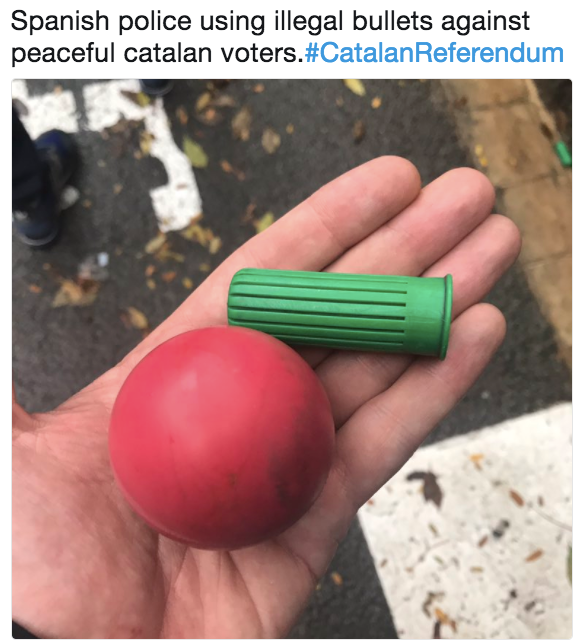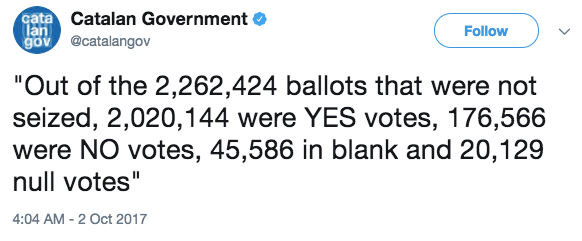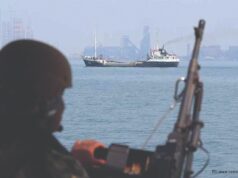

New Delhi: Voters began casting their votes Sunday morning in a referendum on independence that the central government in Madrid has declared illegal.
In Barcelona, as well as Girona, the bastion of Catalan president Carles Puigdemont, people said they had turned out before dawn to protect polling stations and defend their right to vote, defying attempts by the central government to prevent the referendum.
Thousands of separatist supporters have occupied schools and other buildings that have been designated as voting centres ahead of the polls opening.
Catalonia, a wealthy region of 7.5 million people in north-eastern Spain, has its own language and culture. It also has a high degree of autonomy, but is not recognised as a separate nation under the Spanish constitution.
Madrid has put policing in Catalonia under central control and ordered the regional force, the Mossos d’Esquadra, to help enforce the ban. There are several reports on social media of Spanish police firing rubber bullets at people queuing to vote in the referendum.

In a show of force ahead of the poll, Spanish authorities have also seized voting materials, imposed fines on top Catalan officials and temporarily detained dozens of politicians. Police have also occupied the regional government’s telecommunications centre.
According to poll, a minority of around 40 percent of Catalans support independence, although a majority want to hold a referendum on the issue. The region of 7.5 million people has an economy larger than that of Portugal.
Catalonia is one of Spain’s richest and most highly industrialized regions. Many Catalans blame much of Spain’s 2008 debt crisis on the central government and believe that the affluent region pays more to Madrid.
With a distinct history dating back to the early middle ages, Catalans see themselves as a separate nation from the rest of Spain. This feeling is largely fed by memories of the Franco dictatorship, which attempted to suppress Catalan identity.









